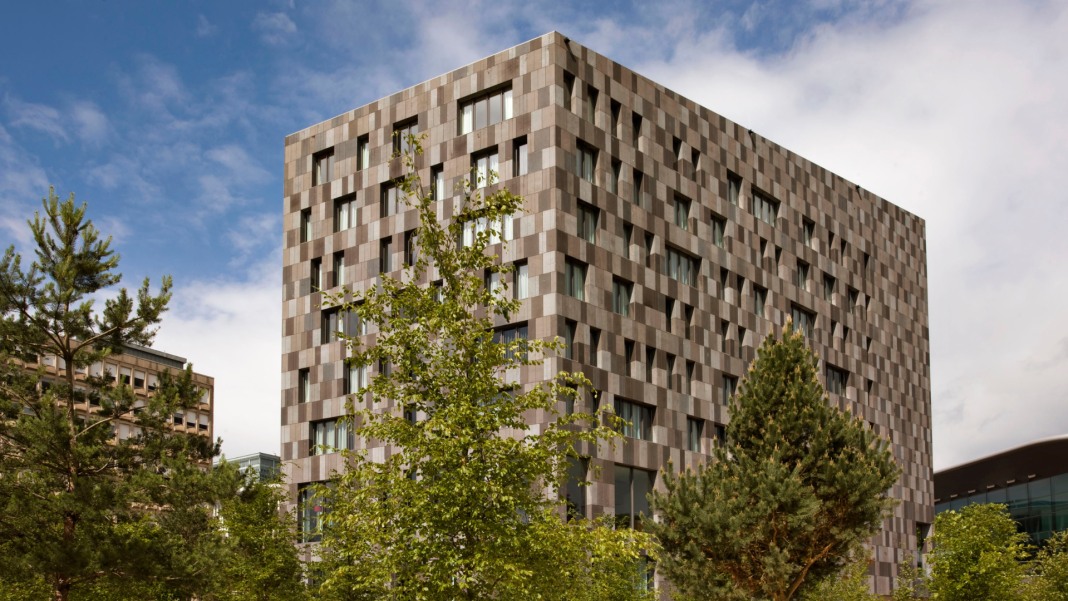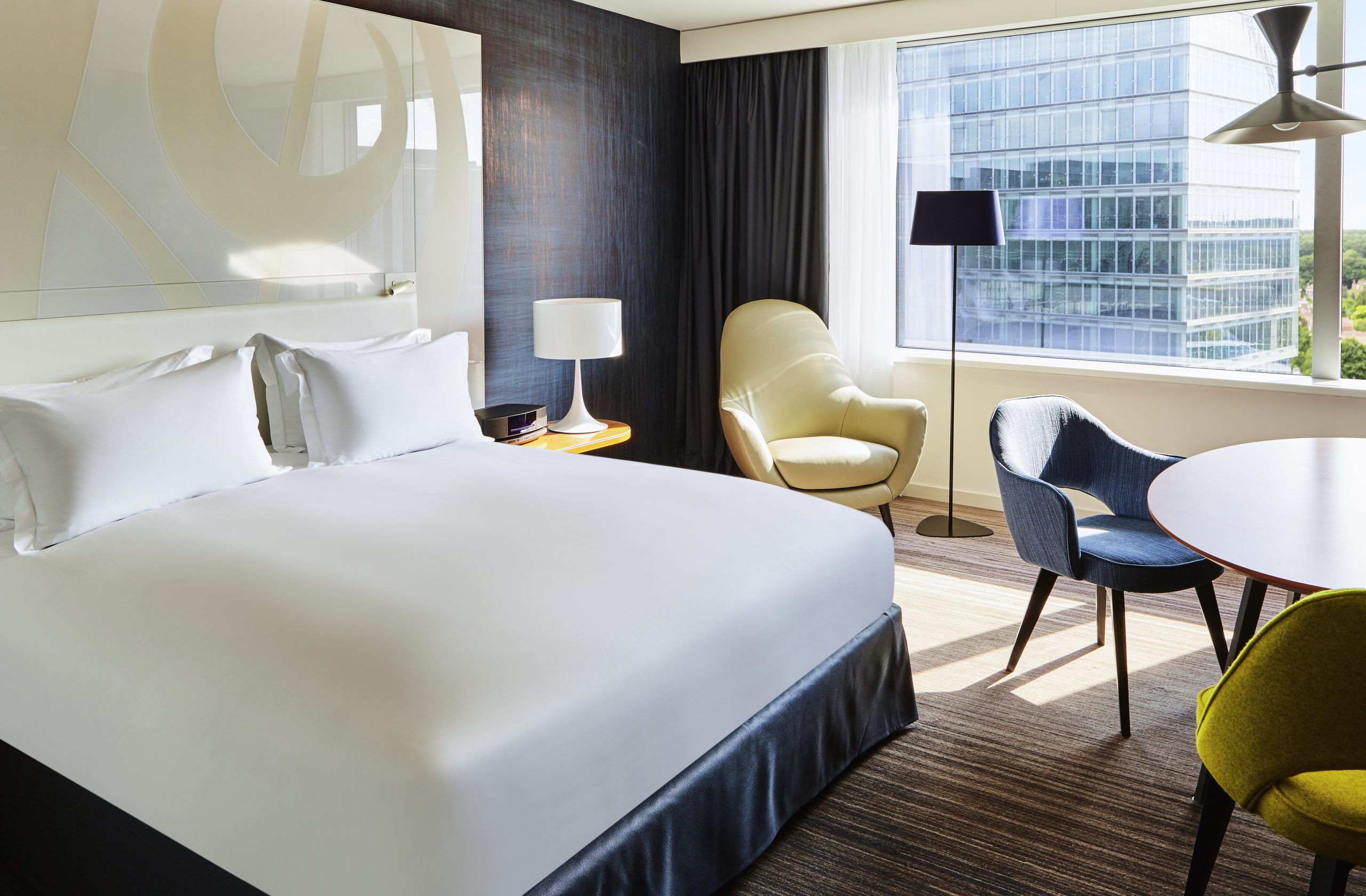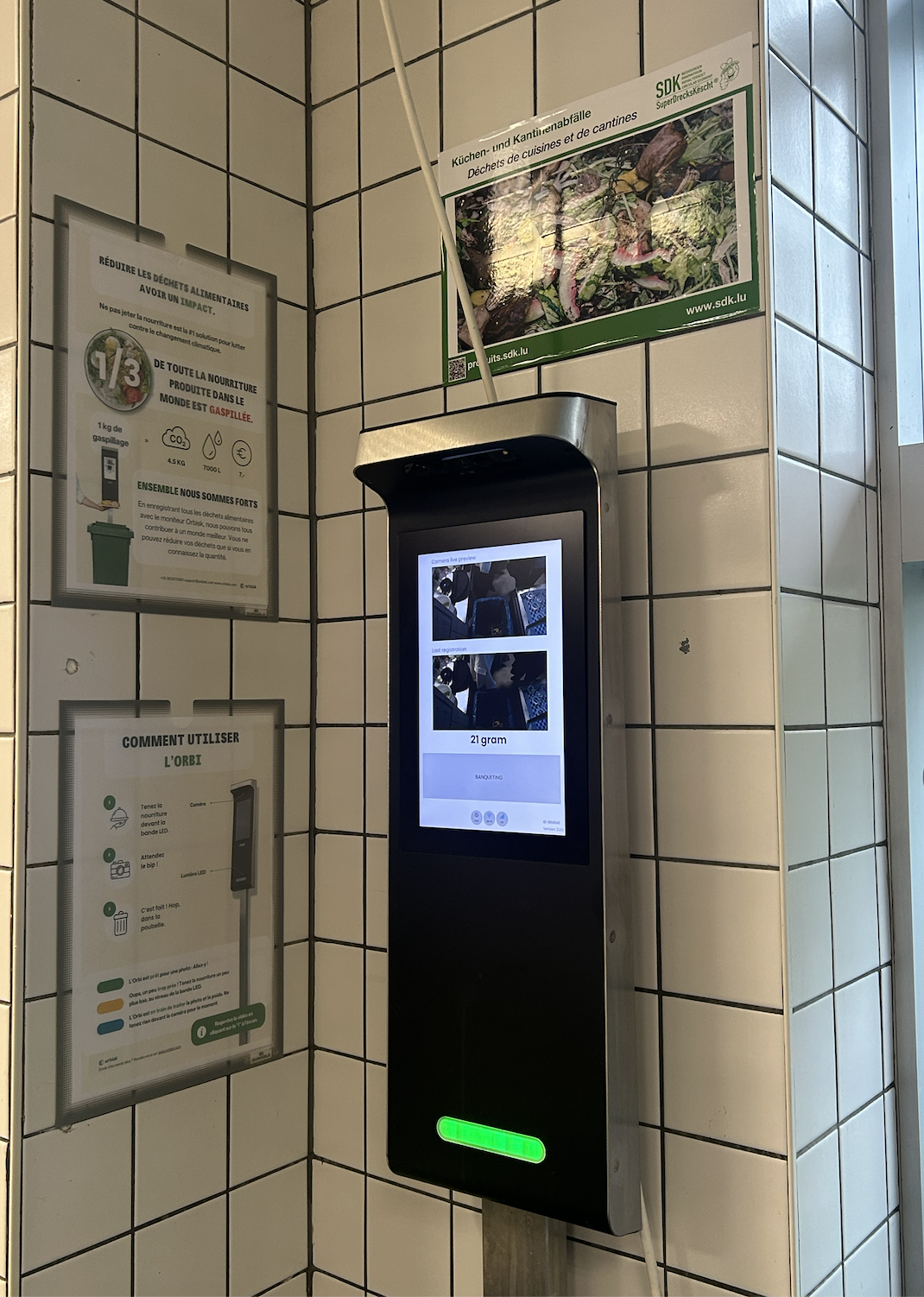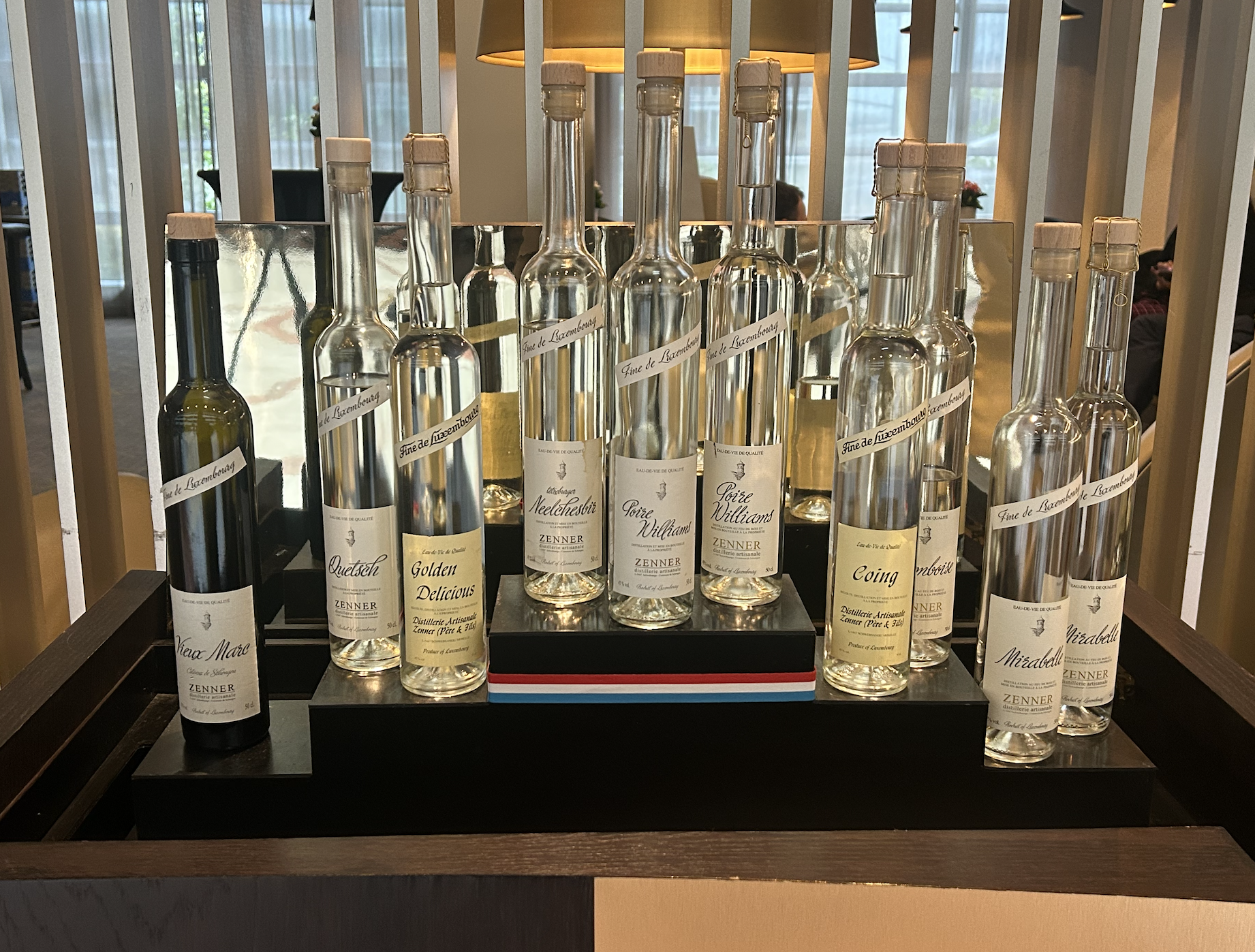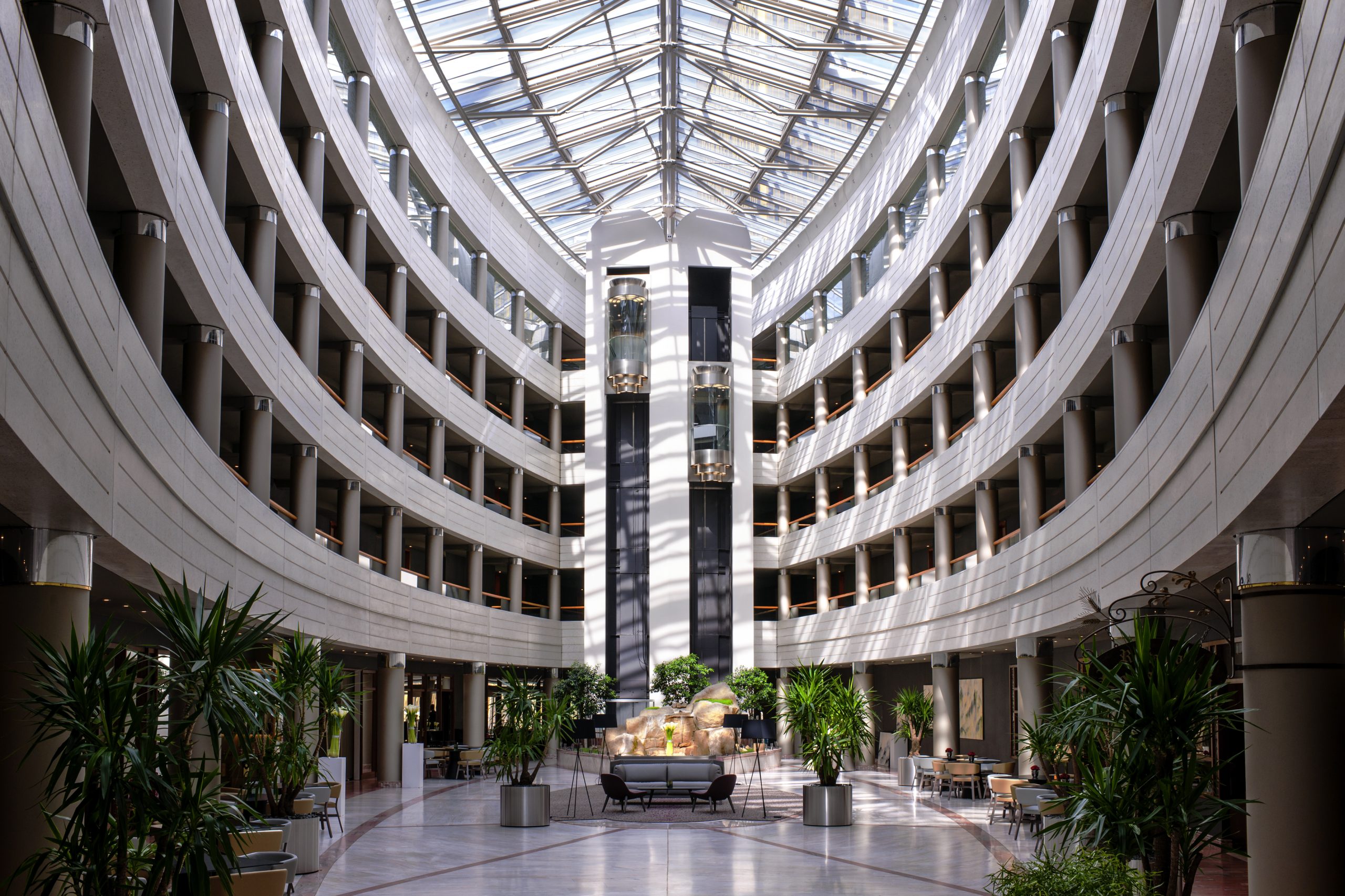The travel and tourism industry has been cited as a growing contributor to carbon emissions. Yet several Luxembourg hotels are using innovative solutions, including artificial intelligence, to make strides in greener action and thinking, also amongst their guests.
One of the world’s largest hospitality companies, the French hotel group Accor in 2021 announced its goal to achieve net-zero carbon emissions by 2050. In 2023 the company signed a collaboration agreement with Green Key, aiming for all hotels within its portfolio to be sustainability certified before end-2026.
Among the brands in the Accor portfolio is Sofitel, two of which are in Luxembourg. Sofitel Luxembourg Europe director of operations Mario Komann says the initiatives go beyond only the environment. “When it comes to green thinking, it’s not just what pops into everyone’s mind,” he says, referring to aspects like separating waste and ensuring cleaner housekeeping products. “With Green Key, there are, of course, environmental actions, but they also take care of what we’re doing to transmit green thinking to our guests.”
Project manager Julie Turquia adds: “With Green Key, there are 13 main points, 175 criteria that have to be validated, starting with administration, water, energy, food, food waste, something we manage well here.”
Take water usage, for instance: the hotel has recently been tasked with reducing its water flow even further, from seven litres per minute to four. One of the ways it does this is through its “Go green, skip the clean” programme, those opting to forgo housekeeping receive 10 points per day on their Accor Live Limitless account (ALL).
To take another example, the hotel is also using artificial intelligence in its kitchens: when servers take finished plates back to the kitchen, they hold them under the device, which scans and recognises the type of food and, as the waste is thrown into the bin, it’s simultaneously calculated, providing real-time feedback not just to the hotel but to the broader Accor network. The hotel aims to achieve a maximum 150 to 170 grams of food waste per person.
“The awareness is there: people are searching more for hotels which are labelled green,” Komann adds.
EcoLabel Lux
For hotels looking for a label closer to home, there’s EcoLabel Luxembourg, which was established in 1999 and has since been awarded by the Ministry of the Economy, General Directorate of Tourism and coordinated and supported by Oekozenter Pafendall. The label assesses five criteria: management, energy, water, waste and purchasing.
Véronique Linden, who serves as a coordinator for the label and is an environmental advisor at Oekozenter Pafendall, says that roughly 48 accommodations hold the label, with three to five new ones reaching out on average each year to initiate the process. The Oekozenter Pafendall helps accompany these accommodations along their journey, later auditing them to determine whether they meet the standards and, if so, whether they’ve reached enough points to gain bronze, silver or gold status.
Linden says that although most are very motivated to dig in and understand each of the categories, a few are a bit “shocked” at what the audit and corresponding work would entail. While Linden cites innovative practicessuch as digital applications for managing food waste and expiration dates, photovoltaic systems, etc,she says accommodations don’t need to have very specific technology. “To have the EcoLabel, you don’t have to have modern renovation, modern heating systems or every renewable energy,” she says. “You can always achieve it by good, sustainable management.”
Although the label is not a prerequisite for the EU EcoLabel, it can nevertheless facilitate the process, Linden adds. The feedback she has received from some accommodations is that guests are increasingly asking about their environmental initiatives.
From water leakages to prototype room
Among the Luxembourg hotels to have received the EcoLabel Lux is Parc Hotel Alvisse. Desmond Christopher serves as its quality manager, a job which includes ensuring efficiency and keeping up with sustainable and quality standards of the hotel.
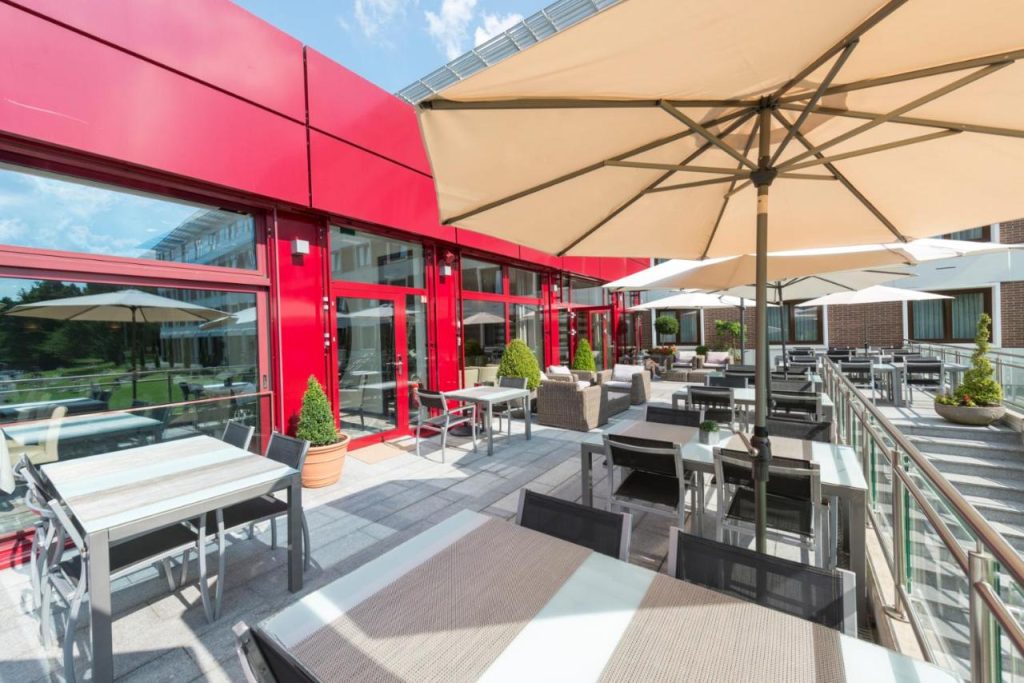
Among the initiatives the hotel has taken over the years is partnering with Shayp, which helps organisations track water consumption and detection through the use of tech, also installed in the pipelines. “This tells us each time we have a leakage in the building so we can quickly take action to reduce defects, which helps us reduce our waste,” Christopher explains. The hotel plans on further enhancing its software, “also so clients would play their parts, having a digitised interface in the room.”
By Q3 2026, Christopher adds, the hotel aims to launch a first prototyped room with full integration of a central interface, where guests can turn on and off lights, control blinds and temperature of the room, see airport activities, etc. They’ll also be able to set their own preferences, including an opt-in for a sustainable stay. These clients will be able to see their water usage reports. “We’re looking to go all-in to the digitalised world,” Christopher says. “These centralised control units would also play a crucial role in our sustainable programme.”
Management messaging
Also on the EcoLabel Lux list are Meliã Luxembourg and INNSiDE Luxembourg, both part of the network of Meliã Hotels International, which also boasts second hotel company worldwide in the “World’s 500 Most Sustainable Companies 2025” ranking, just one of a number of accolades it has received.
As cluster general manager Luxembourg Carsten Baumann shares, their heating and cooling pipes have balancing valves installed to better control temperatures and, in turn, save on consumption and associated costs. Taps, as well as shower and bath units, have been fitted so that water flow can be adjusted, which has helped to reduce tap usage to around six litres per minute and showers/baths to nine litres per minute. The hotels also sort and recycle waste and have focused on LED lighting and keep daily track of total water, electricity, cooling and heating. Its linen programme is also tied into its customer loyalty programme, so customers can opt to gain extra points in their sustainable contributions.
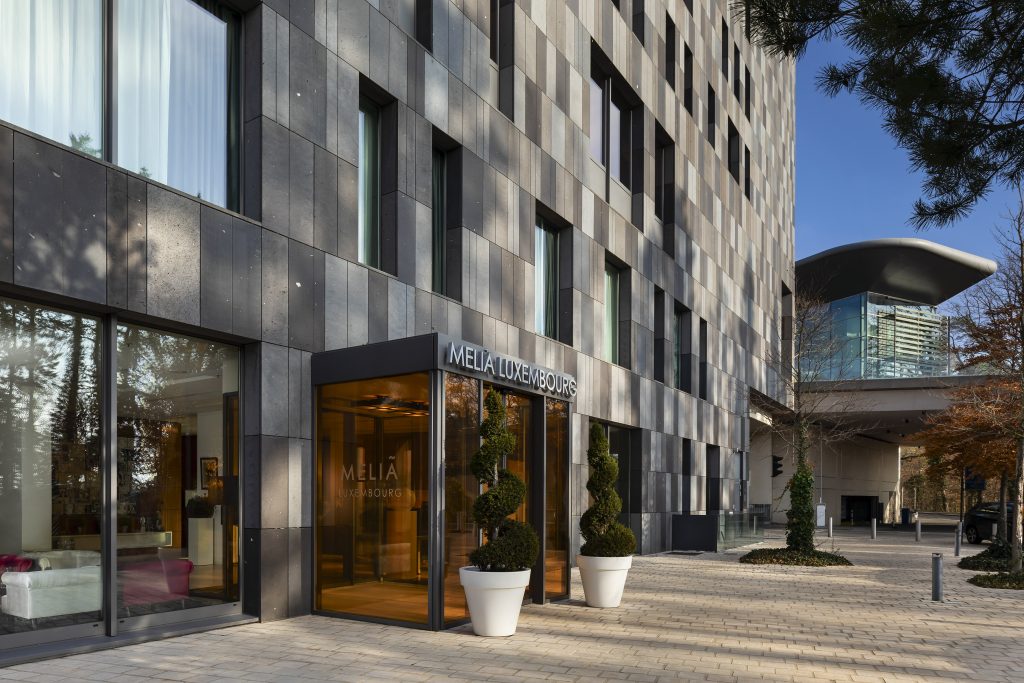
Baumann says a big reason why the company has done well in sustainability is thanks to its chairman and CEO, Gabriel Escarrer. Within the group, Baumann says, sustainability “is a message spread from top to bottom and, since the company is like a family, I have the feeling everyone inherits that type of mentality.”
At the group level, Meliã has worked with charities, like Gravity Wave through the “Meliã for Oceans” programme, which aims to remove over 20 tonnes of plastic waste from the Mediterranean by 2025 which it then aims to transform into elements for the hotel. But the company has also been open to things on a very local level in Luxembourg, like the fundraising that took place last year in Luxembourg to support the flooding victims in Valencia. Baumann says this initiative began small but gained momentum, thanks to the Spanish community in Luxembourg, local business, as well as the Spanish Chamber of Commerce and the Embassy of Spain. The hotel hosted around 150 people and sold tombola tickets and served paella, bringing in around €14,000 in donations dedicated to the cause.
Read more articles:
Brasserie Nationale: Brewing Beer With A Conscience
Meet The Scale-up Closing The $3.5 Trillion Climate Funding Gap
Alicia Brun: The Serial Brand Builder Turning Luxembourg’s Meal Vouchers Digital

